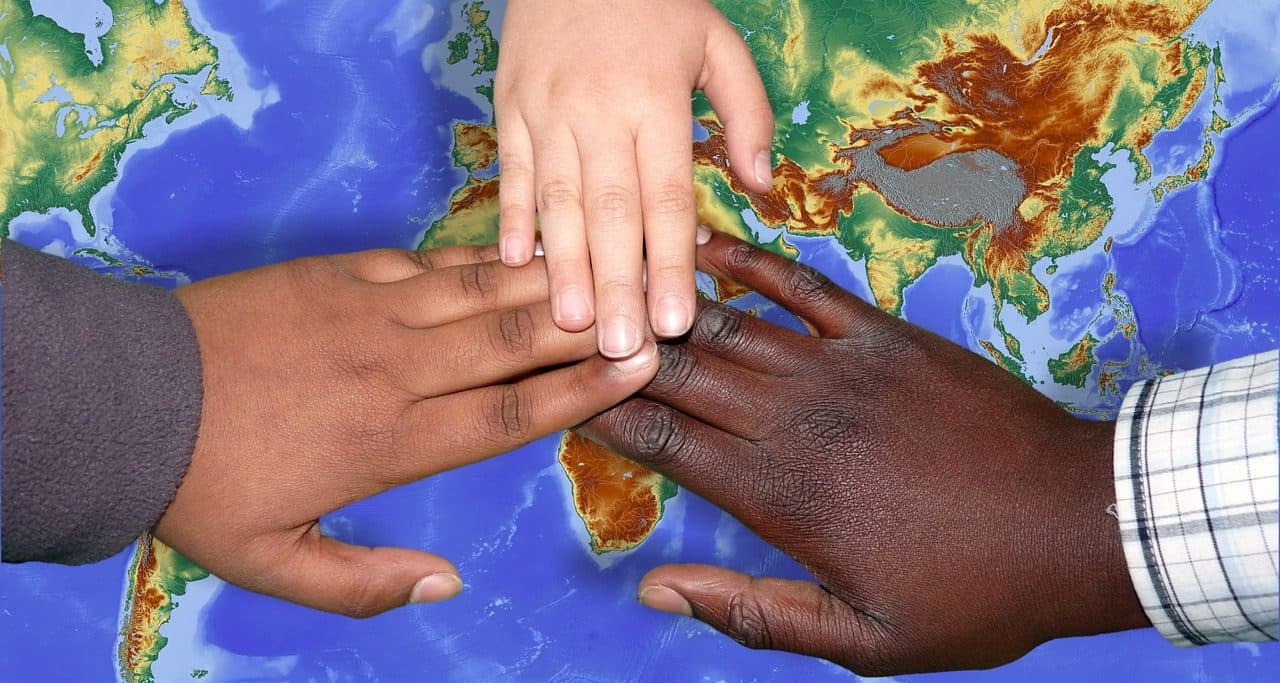
International cooperation is usually channeled as development aid.
International cooperation is the help that one or more countries provide to another or others . It is a collaborative relationship that is established with the intention of meeting certain objectives.
It should be noted that the idea of cooperation refers to joint action in favor of something or someone. The notion is usually used to refer to the work that is carried out with another agent to achieve a certain goal. International , meanwhile, is what is linked to a nation other than its own or what involves two or more countries.
What is international cooperation
The concept of international cooperation covers all types of assistance or aid between countries . It generally consists of the voluntary provision of money or technical resources.
It is important to keep in mind that cooperation can occur between States or involve the intervention of companies or non-governmental organizations (NGOs) . With globalization , these links are increasingly common and, at the same time, more complex.
Today it is understood that international cooperation goes beyond humanitarian aid and financing for development. These processes may include the coordination of policies and efforts to achieve social, economic, cultural or political objectives.
Sustainable development, world peace , universal literacy, food security, biodiversity conservation and the protection of human rights are some of the purposes of international cooperation, which can also be promoted to combat human trafficking and money laundering, among other transnational crimes.

When a migration crisis occurs or the refugee movement grows, international cooperation is needed.
The role of the UN
The United Nations (UN) has a relevant role in international cooperation. The organization is even often mentioned as a pioneer in the institutionalization of these practices, since the concept was included in Chapter IX of the United Nations Charter (which was signed in 1945 ).
This document refers to the need to promote stability for the development of friendly and peaceful relations between countries, which are based on the self-determination of peoples and equal rights. In this framework, it is also detailed that the UN promotes international cooperation in education and culture and the joint solution of problems that go beyond borders in health, social and economic matters.
The Charter of the United Nations also refers to specialized organizations that, established through intergovernmental agreements, have "broad international powers."
It is interesting to mention that, in 2015 , UN members agreed on the Sustainable Development Goals (SDGs) . There are 17 purposes that all countries committed to fulfill, helping the poorest nations in the process.
International cooperation through the UN can also be seen in the fight against climate change. The United Nations Framework Convention on Climate Change (UNFCCC) , in force since 1994 , made possible the implementation of instruments such as the Kyoto Protocol and the Paris Agreement to reduce greenhouse gas (GHG) emissions at the global level. global.

International cooperation can promote education for all.
Principles of international cooperation
International cooperation is developed according to various principles. The move from welfare to the promotion of sustainable development is one of them; Along the same lines, it is indicated that it is a priority to promote actions to strengthen local capacities.
In this way, it is understood that international cooperation must aim to improve the skills and possibilities of the beneficiary . Although it is often essential to attend to and resolve urgent needs, the intention is that the aid helps the recipient to build their autonomy and be able, in the future, to progress on their own without the need for external collaboration .
It is common, on the other hand, for international cooperation to be based on demand and for measures to be implemented capable of offering measurable results. The beneficiary, freely, must be able to express what type of assistance he requires, so the benefactor must respond to the request to make his contribution.
The COVID-19 pandemic
The COVID-19 pandemic was a tragedy that forced international cooperation to be optimized and strengthened due to the characteristics of the problem.
It should be noted that epidemics occur when a disease spreads in a region for a certain time, affecting many individuals simultaneously. If the disease in question spreads to many nations, it becomes a pandemic , as happened with COVID-19 .
This infectious condition is caused by the SARS-CoV-2 coronavirus . The first cases were recorded at the end of 2019 in the Chinese province of Wuhan ; Less than a month later, the disease had already spread to other regions of China and even abroad, with cases reported in Thailand and Japan .
The COVID-19 pandemic was declared in March 2020 by the World Health Organization (WHO) . National governments began to take measures such as mandatory social isolation and quarantines and to coordinate measures with each other.
International cooperation, in this context, was key to minimizing the severity of the disease through vaccination . Scientists from different nations worked together to create the vaccines, while the COVAX Program was established to achieve equitable access to this health resource. These joint efforts contributed to the WHO , faced with the improvement of the situation, being able to declare the end of the COVID-19 pandemic in May 2023 .
